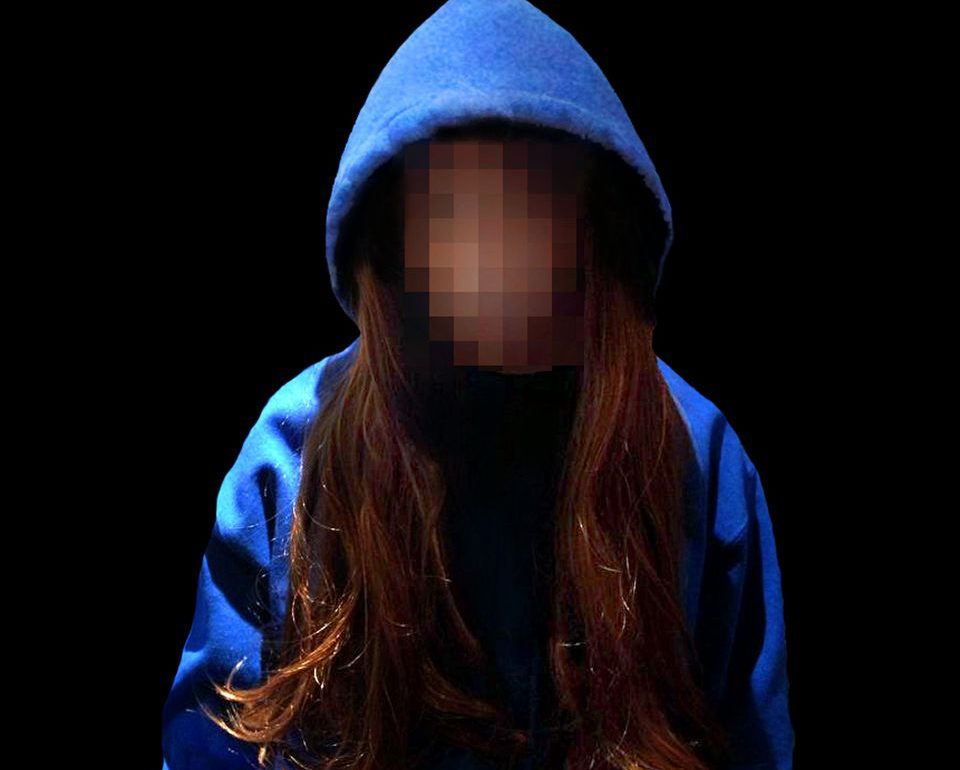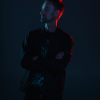Brighton-based artist Elizabeth Bernholz’s Gazelle Twin project is much more that a simple stage name. The distorted, anonymous figure that is presented in images, on stage and through the lyrics is somehow able to simultaneously evoke the universal and deeply personal.
On her latest album Unflesh, Gazelle Twin’s lyrics directly reference Bernholz’s own experiences, particularly related the intense personal difficulties faced through her adolescence. While the particular history presented is unique, the mood created and wider ideas that are explored are easily identifiable, and widely applicable.
Sonically, Gazelle Twin’s second LP is a raw, but restrained cacophony of syncopated beats, droning bass accompanied by shrieking, manipulated vocals and synths.
It is undeniably dark record, but its beauty lies in this darkness, with a genuine feeling that the listener is privy to an exorcism of past pain. The power of Unflesh has not gone unnoticed since its release late last month, having garnered Gazelle Twin a strong following as well as high praise from across the music media.
We caught up with Elizabeth Bernholz to talk all things Gazelle Twin, with a particular focus on the formulation of her unique and powerful sound and aesthetic for the project.
Hi Elizabeth, how are you and what have you been up to today?
I am fine thank you, but a little tired. I am in the middle of a three-day break in Cologne whilst touring Europe. It’s my first ever tour, and is only small but it has been quite tiring getting all over the place from Czech Republic to Italy, Switzerland, Germany, Brussels and Glasgow!
So your second album Unflesh has been out since for just under a month, how have you found the reaction to it so far?
The reaction has been really positive, and surprising. I wasn’t holding out for huge amounts of press or acclaim, as I really was just happy for the record to get out there. It was such a long period of writing and a very reflective and at times difficult process to realise, so to have it released was like a huge relief, regardless of its success.
Your music has always been particularly well received by critics; what do you think it is about your sound that encourages such positive responses?
I have no idea, but I hope it has something to do with the amount of effort I put into it. I know for some effort is not always rewarded with good feedback and this can be really crushing when you have put everything into a piece of work. People can be very cruel and quick to tread on an artist’s work. I have been very very lucky indeed to avoid anything like that, and have really had some overwhelming reactions to the new record, from critics and non-critics alike (the latter are of course always more important to me).
Can you tell us a little bit about how you have developed this unique sound? What have been some of your sources of inspiration in developing it?
I wanted to create something that I felt refreshed what I had created previously, and almost drain away the reverb and dreaminess that slowed it down. I am very drawn to danceable music, especially to perform or listen to live, so I felt that I should try to work towards a very physical record to achieve something closer to this. Production wise I wanted it to be very minimal and allow the elements to really shine out. So vocally for example I left a lot very bare, and kept effects and other aspects as simple as possible. I also wanted to perform in a slightly different way, with more simplicity, more directness. This is what drove me to create the sounds that are there.
What are some of the key pieces of gear you use in production and performance?
It is all blindingly simple! I use Ableton Live, a decent’ish’ pair of Yamaha HS80 Monitors with plenty of sub. I tend to write and produce simultaneously, and then focus in on details later. For Unflesh, I mixed it in an analogue studio in London with Benge (MemeTune Studios), and we also replaced some of the synth and drum sounds with real machines. It’s not something I could have done at home!
Unflesh shows continuing development in your sound; can you tell us a little bit about the sonic and thematic directions behind the album?
As I mentioned before I really wanted to get to the core of a set of ideas that I had flowing right after I finished The Entire City. I was interested in exploring the landscape of the body, and personal experiences that I felt I was only just coming to terms with since being a child and teenager. I really got stuck into researching a lot of the themes that I was just generally interested in, and not all of it was intended to end up as part of a musical record.
I read that creating the Gazelle Twin alias was liberating for you, and essential for your development as an artist; can you talk us through that process of creating this outlet for your art?
Before Gazelle Twin I was not a musician with a specific aesthetic or direction creatively. I knew what I liked and what I wanted to create in some way, but I felt very overwhelmed by the choices I faced, and also the obligations I felt as a female artist. I wanted to really express the core of myself as much as possible and leave the outer shell absent. By choosing to create Gazelle Twin as a project to impose my visual aesthetic onto, as well as my musical one, I did feel liberated. But it still took time (and is still taking time) to explore and refine all the ideas I had from that spark at the beginning.
You’ve had a quite few recent shows in support of the new record, how have they gone? Any highlights you can share with us?
This year I have done more shows than ever before. The new record really was written with live performance in mind, and therefore I really threw myself into the live show. My previous album was much harder to recreate live, and I needed so much else to keep it up to the level I felt it needed, but having simplified everything right down, and rolling with a very lo-fi, humble aesthetic, I have been able to do more shows, and do them to a level where I feel really satisfied.
I think this comes across in the performance too and I get a really good reaction at most shows. People seem to enjoy the heavy bass and onslaught of energy and that feels great. I recently did an album launch in London at Corsica Studios and the crowd was really closely connected all the way through. It’s such a wonderful feeling when you begin a song and someone reacts because they already know it.
There is quite a lot of anonymity, or perhaps more of a distorted personality presented in your live shows; what are some of the reasons behind this choice?
Yes, it’s important for me to create a distance between who I am in everyday life and who I am or at least how I perform live for a show. For me personally, it helps to detach using anonymity, but it also helps me get around other problems such as not wanting to talk in between the songs, or be concerned with fashion or what I wear on stage.
Whether we mean to or not, I think people connect the visual aspects of a performer with the music they make, and this can cause problems for me as very often it becomes judgmental or shallow. I am not interested in reflecting a type of fashion or trying to look like a model or be attractive as a performer. I actually want to do the opposite and detach from my real self as much as possible. This is really liberating for me.
Where are you planning to take the live show next?
After this stint in Europe, I am going to be doing three weeks of touring in North America and Canada, this is quite a daunting prospect as I have never toured before at this level, but I am very much looking forward to seeing how it goes down out there, and getting to travel at the same time too. After November, I will be back in Europe again for more shows in December and January, and lots more coming in 2015.
The Entire City was given a fairly comprehensive remix treatment, can we expect something similar with the new album? Are there any remixes or collaborations in the works that you can tell us about?
Nothing set in stone just yet but I am interested in the remix process as a collaborative exercise, and getting to merge and mix up ideas with other producers and artists. Hopefully next year there will be an opportunity to explore some of that in more detail.
Sounds like there is plenty for us to look forward to next year then.
Unflesh is out now on Anti Ghost Moon Ray.
Written by Will Van de Pol




